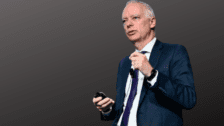Changing your mindset
The pandemic but more importantly the economic restrictions used to limit its spread will have long-lasting impacts on the global economy. As Victoria, and with-it Australia, appear to be nearing the end of lockdowns the northern hemisphere is now facing their own, more deadly second wave, with a curfew installed in Paris over the weekend. These conditions have been challenging for us all personally, but particularly damaging for smaller businesses who have put their livelihood at risk to employ others.
During this period, we have been required to draw on every depth of knowledge and experience to deal with incredible changes to our lives and those around us. Many of us have become veracious readers during this period, myself included. One of the pieces that stood out most in recent months, has been an insight offered by global consulting firm, McKinsey. The article identified the six most important parts of a business leaders mindset both before and even more importantly post COVID-19.
McKinsey are quick to highlight that great leaders are ‘made’ not born. They tend to adopt an open and curious mindset, rather one with fixed positions based on the conventional wisdom. The first of six mindsets could be summarised as ‘acting like a toddler’, but not in the petulant way, rather the constant questioning of everything around them. They highlight that leaders are curious about every element of a problem. They question the assumptions of the question, rather than taking it as fact. The paper suggests that when faced with an issue, leaders should add a question mark to the statement, rather than accept it as fact.
The second is the importance of imperfection. Great leaders aren’t perfectionists as we so commonly expect, perfectionists can actually be the worst leaders. Being imperfect is key to constant learning, it allows for trial and error and a higher tolerance for ambiguity, forcing leaders to estimate rather than seek certainty in an uncertain world. The dragonfly is renowned for its 360 degree view of the world, buzzing around taking everything in. This is the third mindset required of a great leader, an ability to see the world through multiple lenses not just their own. This may be as an end customer, a junior employee or shareholder. Never has this ability to ‘walk in someone else’s’ shoes been more important in surviving and growing businesses in a ‘COVID normal’ world.
Experimentation, McKinsey suggests, is another key trait. Skilled leaders pursue occurrent behaviour and ask why it occurred and why this way? They seek to understand what actually happens when changes are made or policies implemented, rather than make assumptions based solely on modelling. They create data, seeking to learn from complexity and are most important willing to ‘fail fast’ before changing course.
One issue highlighted during this crisis has been the regular use of the term ‘medical advice’ and modelling. This links to the penultimate mindset, which is to truly appreciate that the smartest people may not be in the room. Great leaders must tap into the collective intelligence and share important decisions, rather than seek to control and build consensus themselves. They crowdsource problem solving rather than cherry pick. McKinsey highlight that rookie problem solvers show you the process and the mathematics behind their solution to convince you there are smart, rather than questioning the modelling themselves.
Finally, back to the mindset of children. Great leaders embrace the concept of ‘show and tell’. They create a path to the answer, rather than seeking to identify it alone. Despite the purpose of this piece being to help financial advisers negotiate the new, more challenging, normal, there are clearly insights for leaders of all kinds from the paper. Something we should all heed.










